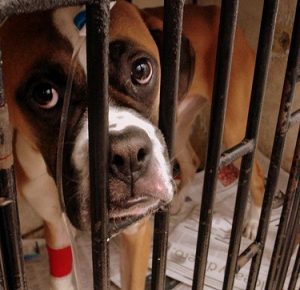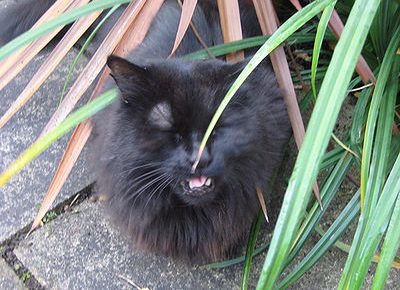Scientists tell us that it won’t be long before we all are eating bugs, although only specific types. But our pets are not as discriminating as we are. Anything flying or crawling is fair game.
For the most part bugs, such as grasshoppers, flies, earthworms, some spiders and others, offering small protein meal, will not harm pets. But there are insects that can be toxic to pets or are hosts to parasites that can be passed on to our pets.
The Monarch Butterfly places its eggs on the leaves of Milkweed. While the plant is safe for the Butterfly, the Monarch Caterpillar as well as the Milkweed is poisonous to dogs, cats, birds and other animals. Fortunately, due to its bitter taste, most animals will avoid eating Milkweed.
The chemical in Milkweed called cardonlides disrupts the electrolyte balance in the heart and can stop its function. If you discover milkweed in your garden, remove it, digging it out by its roots. If you suspect your pet has eaten milkweed, take him/her to the vet or emergency clinic immediately. Symptoms can be nausea, vomiting, diarrhea, excessive drooling, tremors, abnormal heart rate, weakness, seizures, leading to death.
Fireflies or as they are sometimes called, Lightning Bugs, contain toxins called lucibufagins that can be poisonous to birds, lizards, amphibians and other animals. A dog ingesting a firefly can have digestive upsets leading to vomiting and loss of appetite.
While June Bugs, Stink Bugs and Cicadas are not poisonous to your pet, ingesting them can cause stomach upset, vomiting and diarrhea. Your pet may drool or vomit after eating a stink bug because of its nasty taste. Eating too many bugs can cause a mass to form in the digestive tract. Called a bezoar, the hard mass may require surgery for removal.
Some caterpillars can sting or inject venom into your pet. Try to keep your pet away from the Wooly Bear, Saddleback, Monkey Slug, Io Moth, Buck Moth, Flannel Moth, Gypsy Moth and Puss Moth caterpillars.
Bees and Wasps can sting and cause your pet to have an allergic reaction – pain, swelling – which requires the immediate attention of a vet.
Venomous spiders such as the Brown Recluse or the Black Widow (see our article) are highly poisonous to dogs and their bites are usually fatal to cats.
Cockroaches, beetles and crickets may carry parasites which in turn give your pet worms.
While it’s difficult to control what your pet ingests outdoors (and sometimes at home), try to keep an eye when your pet is curious about something crawling or flying.



